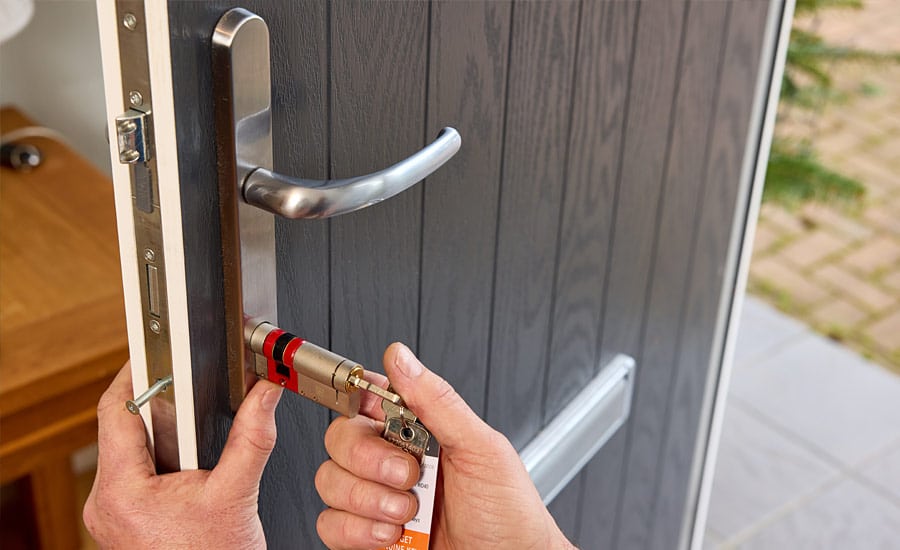Is my home insurance void if my locks are faulty?
What are the insurance requirements for locks? Not securing all access points around the house could void your insurance policy and put you and your family in danger.
The insurance company may not settle your claim if someone breaks into your home and damages or steals things. If your locks are not working, insurance companies say that you have not secured your property.
When a door lock is faulty, it can mean that the door may not open, close, or lock. This is often a result of age and general wear and tear, but it can also be due to vandalism or an attempted break-in.
A faulty lock is not only inconvenient but also poses a serious security threat. Two in three burglars will enter through a door. So, even if you feel the rest of your house is secure, fix your faulty lock now.
Are you concerned you may have a faulty door lock? Here are some questions we are often asked about dealing with a broken lock. They cover making sure you meet your insurance requirements.
What are my insurance company’s requirements?
Each company has its own standards and different requirements for each policy. If your locks don’t meet your insurance company’s standards, they won’t cover the worst.
Most building and contents insurance policies have a stipulation. It says your home must be secure, and your locks must meet British Standard 3621:2004. You can spot the standard by looking for the British Standard Kitemark on the lock. In some cases, this will not be obvious, and you will need the help of an experienced Doncaster locksmith.
Could you read your insurance policy and terms? They will tell you your insurer’s exact lock requirements. Or, call and ask them.

What are insurance requirements for door locks
What is a British Standard 3621:2004 lock?
A British Standard 3621:2004 lock requires a secure door from both sides. Once you lock the door, you need a key to open it from the outside and inside of the property.
A BS 3621 lock will be a mortise deadlock or a night latch-type lock with a deadlocking rim. Mortise locks need a key to activate the deadlock, so a burglar can’t smash a window and reach inside to unlock the door. Also, if a burglar enters through a window, the bar stops them from quickly exiting or stealing large items. They need a key to open the door from the inside.
One strange anomaly is the locks fitted to uPVC and composite doors. The standard required by insurance companies is very poor. My advice would be to check you have three-star rated anti-snap locks fitted. I’m sure this will change in the future for these. For some strange reason, they just ask for a key-operated multipoint lock, and people mix this up with a five-lever lock.
Are lock standards for commercial premises different?
Business insurers also have the least requirements for commercial locks and building security. The requirements differ based on the building type and whether the public uses the building. Read your policy documents and terms. Make sure you meet your insurer’s minimum requirements. If not, they may not have to settle any claims.

